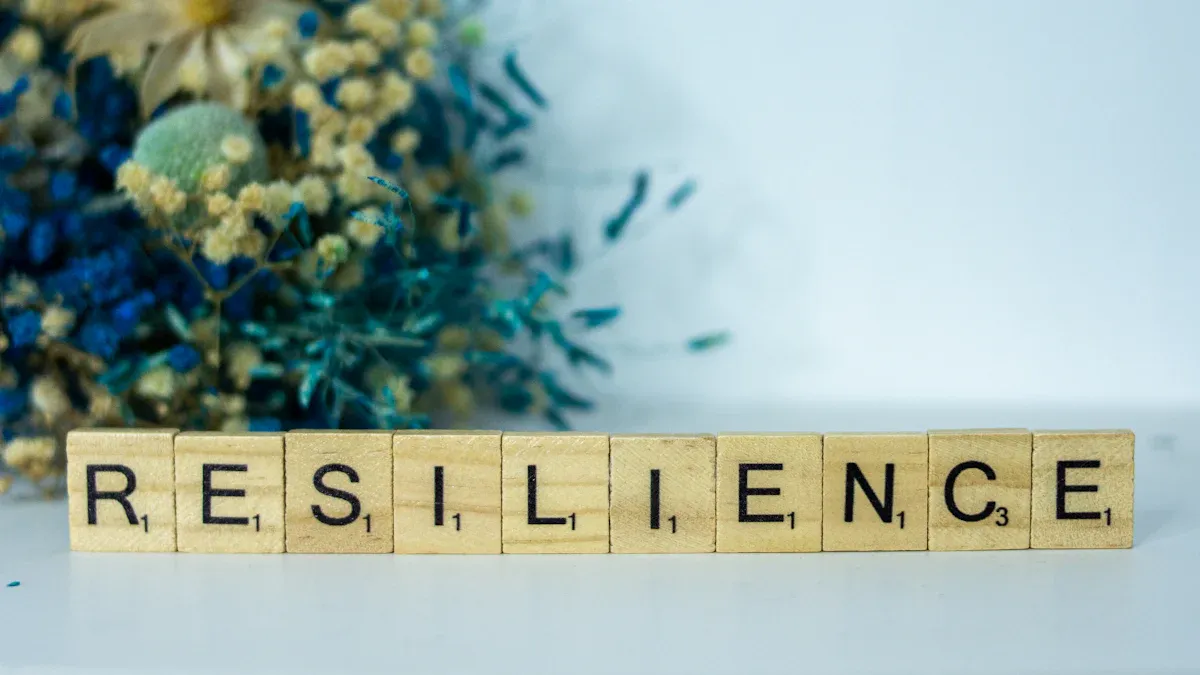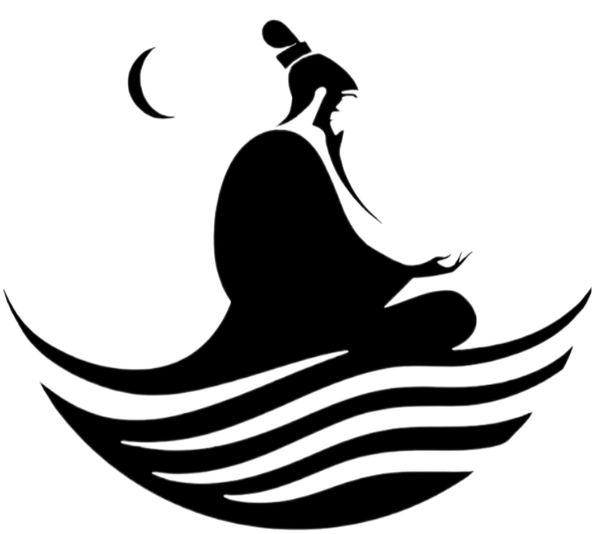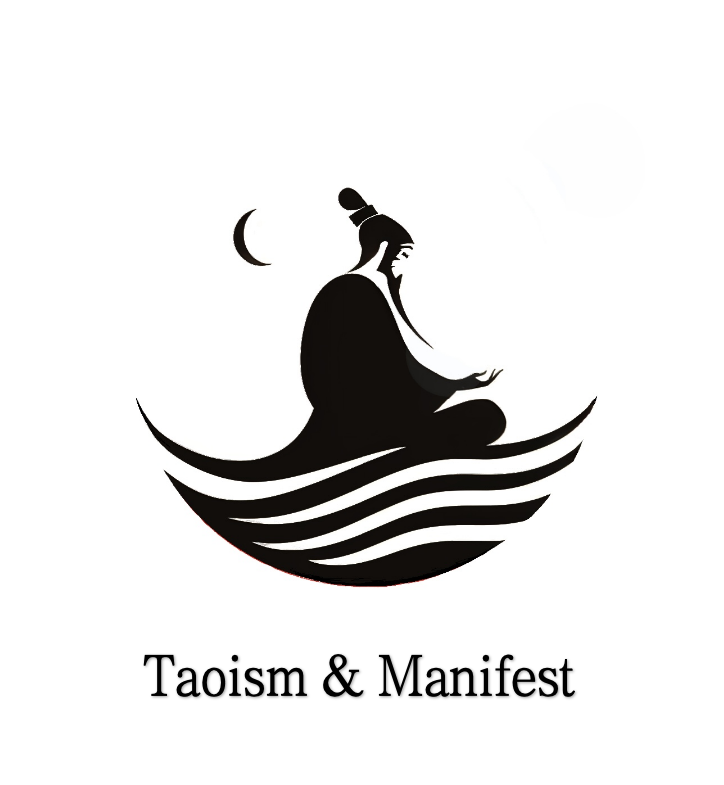
When faced with challenges, pushing harder often leads to frustration. Imagine trying to force open a stuck door—you push and push, but it refuses to budge. Taoism teaches us that true strength doesn’t come from force but from yielding and adapting.
Think of life as a flowing river. Instead of fighting against the current, those with a flexible mindset learn to move with it. They see obstacles as opportunities to find new paths, remain calm, and feel less burdened by stress.
Flexibility fosters growth: People who embrace change practice more, learn from mistakes, and try new approaches.
Strength lies in yielding: By shifting your perspective and adapting to life’s challenges, you uncover inner resilience and peace.
The key is not to fight life’s problems but to move with them. By yielding, you open yourself to growth, creativity, and ease.
Key Takeaways
True strength lies in being flexible and gentle: It's not about forcing things or pushing too hard.
-
Learn from water:
Move around problems instead of confronting them head-on.
Stay calm and adaptable when challenges arise.
-
Let go of the need for control:
Eases stress.
Leads to better ideas and a more peaceful state of mind.
-
Flexibility is key:
Changing your thoughts and actions allows you to face problems effectively.
It builds resilience and inner strength.
-
Cultivate gentleness and patience daily:
Helps you recover from setbacks.
Makes life feel more manageable and joyful.
Taoism and Yielding

Softness Overcomes Hardness
You may think that being strong means never bending or giving in. Taoism teaches something different. In Taoism, you find that softness can actually overcome hardness. The Tao Te Ching, a famous Taoist text, says that nothing is softer or more yielding than water, yet water can wear away rock over time. This idea shows that gentle actions and flexible attitudes can solve problems that force cannot.
You can see this in daily life. When you face a tough situation, you might want to push back or fight. Sometimes, this only makes things worse. If you stay calm and open, you often find a better way forward. Psychological studies show that people who stay flexible and adapt to change handle stress better. They bounce back from setbacks and do not get stuck in negative thinking. This is the power of softness. It helps you move through challenges without breaking.
Taoism encourages you to practice Wu Wei, which means effortless action. You act in harmony with what is happening instead of forcing your own way. This does not mean you do nothing. It means you respond naturally and wisely, just like water flows around rocks instead of smashing into them.
Tip: Next time you feel stuck, try pausing and letting go of the urge to force a solution. Notice how a softer approach can open new paths.
The Water Metaphor
Water is one of the most important symbols in Taoism. You can learn a lot from watching how water moves. Water flows gently, but it can shape mountains and carve valleys. It adapts to every shape and fills every space. When you act like water, you become more flexible and open to change.
Taoist teachings say that water nourishes all things without trying to control them. It moves around obstacles instead of fighting them. Over time, water can even wear down the hardest stone. This shows you that patience and persistence, combined with a gentle attitude, can help you overcome even the biggest problems.
Modern psychology supports this idea. Studies show that people who stay flexible in their thinking are more resilient. They recover from setbacks faster and feel less stress. Practices like Health Qigong, which use soft and flowing movements, help people feel calmer and stronger inside.
You can use the water metaphor in your own life. When you face a problem, ask yourself, "How can I flow around this, instead of pushing against it?" This mindset helps you find creative solutions and keeps you from feeling stuck.
Remember: Water teaches you that yielding is not weakness. It is a quiet strength that helps you move forward, no matter what stands in your way.
Mindset Shifts
Letting Go of Control
You may feel the need to control every part of your life. This urge can make you tense and worried. Taoist philosophy teaches you to let go and trust the flow of life. When you stop forcing things, you often find more peace and better results.
Do you have the patience to wait
Till your mud settles and the water is clear?
Can you remain unmoving
Till the right action arises by itself?
This wisdom from Lao-Tzu reminds you to practice patience and stillness. When you let go, you allow answers to come naturally. You do not need to rush or push. Instead, you can wait for the right moment to act.
Letting go of control brings many benefits:
You feel less stress and anxiety.
Your mind becomes clearer and calmer.
You build stronger relationships by letting go of grudges.
You become more ready for surprises and changes.
Trying to control everything can make you feel tired and unhappy. When you release this need, you gain more freedom and joy. You also become more open to new ideas and solutions.
Embracing Flexibility
Flexibility means you can change your thoughts and actions when needed. Life often brings surprises. If you stay rigid, you may break under pressure. When you stay flexible, you bend and adapt, just like bamboo in the wind.
Psychological flexibility helps you handle stress and setbacks.
You learn to accept difficult feelings without judging yourself.
You can try new ways to solve problems.
Flexibility supports better mental health and stronger relationships.
You may face barriers like old habits or fear of change. These are normal. You can overcome them by taking small steps and being kind to yourself. Each time you choose a flexible response, you grow stronger inside.
Tip: Next time you face a challenge, pause and ask, "How can I adapt right now?" This simple question can help you shift your mindset and find a new path forward.
Learning from Setbacks

Failure Analysis
You may have tried to solve a problem by pushing hard or sticking to your first idea. Many people do this, but it often leads to more stress and disappointment. When you force a solution or try to fit every problem into your own plan, you miss new ideas and chances to learn. This kind of thinking can make you feel stuck.
Researchers have found that forceful approaches often fail because they block you from seeing unexpected issues. If you only look for answers that fit your beliefs, you may ignore important clues. In tough situations, fear and shame can also stop you from admitting mistakes. You might feel alone or worry about what others think. This makes it hard to reflect and grow. When you hide your failures, you lose the chance to improve and become stronger.
Remember: Setbacks are not signs of weakness. There are chances to learn and change your path.
Behavioral Reconstruction
Taoist wisdom gives you a gentle way to rebuild your actions after setbacks. You can follow these steps to move forward with more ease:
Notice what causes your stress. Ask yourself what really made things hard.
Think about your beliefs and needs. What matters most to you right now? Is it freedom, love, health, or something else?
Look at how you react. Do you hide your feelings, talk about them, or try to escape?
Practice Taoist ideas. Try to act without forcing things. Learn to be content, stay humble, and use softness to face problems.
Reflect on your progress. Take time to notice how you feel and what you have learned.
You can also try simple practices like walking in nature and repeating, “All is Tao.” This helps you feel calm and connected. When you let go of the need to control everything, you find new ways to handle setbacks. You become more flexible, just like water flowing around rocks.
Applying Taoism Daily
Everyday Practices
You can bring the art of yielding into your daily life with small, simple steps. Start your morning with a few minutes of quiet breathing or gentle stretching. This helps you feel calm and ready for the day. Many people find that meditation, a core practice in Taoism, lowers stress and helps you manage your emotions. Research shows that meditation and tai chi can improve your mood, balance, and even your heart health.
Try to focus on one task at a time. When you give your full attention to what you are doing, you avoid rushing and feel more at peace. In your family, spend time outdoors or play games that let everyone relax and enjoy the moment. These activities help you connect and create a gentle, caring space.
At work or school, practice patience. If you feel stuck, pause and let the answer come to you instead of forcing it. You can also show kindness and gratitude to others. These small acts make your day smoother and help you build better relationships.
Tip: When you face a problem, ask yourself, “How can I flow around this like water?” This question can help you find a softer, more creative solution.
Building Resilience
Resilience means you can bounce back from hard times. Taoism teaches that you do not need to fight every challenge. Instead, you can bend and adapt, just like bamboo in the wind. Studies show that people who practice flexibility and patience recover faster from stress and setbacks.
xIn Chinese culture, resilience is seen as the ability to bend without breaking. This idea matches Taoist wisdom. You can build this kind of strength by staying open to change and trusting that things will work out. Over time, you will notice that you handle problems with more ease and less worry.
Remember: True strength comes from being soft and flexible, not from being hard and unyielding.
You gain many benefits when you choose softness and flexibility.
You save energy by flowing with change instead of fighting it.
You feel less anxious and more at peace.
You learn to let go of what does not help you and focus on what matters.
You build true strength by adapting and staying open.
Take a moment to notice how you respond to setbacks. Try a softer approach next time. You may find that life feels lighter and more joyful.
FAQ
What does “yielding” mean in Taoism?
Yielding means you choose to stay soft and flexible. You do not fight every problem. You look for gentle ways to move forward. This helps you handle stress and find new solutions.
Can yielding make me seem weak?
No, yielding shows inner strength. You stay calm and adapt when things get tough. People respect those who can bend without breaking. You show wisdom by choosing softness over force.
How can I practice yielding every day?
Try pausing before you react. Take a deep breath. Ask yourself, “Can I handle this in a softer way?” You can also practice gentle movements like stretching or walking slowly.
Will yielding help me with big problems?
Yes, yielding helps you face big challenges. You do not waste energy fighting what you cannot change. You find new paths and keep moving forward. This makes you stronger over time.






